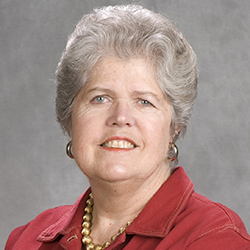
BY EMILY GILL
Although people of all ages can be victims of COVID-19, we share a common awareness that some folks are more vulnerable than others. This fact has promoted a mentality that makes us wonder when someone has died whether they were old or had an underlying health condition. According to a recent article, in fact, a victim’s daughter received a condolence call that was anything but one. The caller grilled her with questions: “How did he catch this?” “Who was he with that was sick?” Someone else opined, “I don’t believe he could have gotten infected while shopping.” When people learned that the victim was an older man, they then acted as if this was no big deal.
As Jennifer Senior pointed out in an April New York Times column, “We are silently building moats around ourselves to separate ourselves from the dead.” That is, we are seeking reassurance, even if unconsciously, that we are not like those who die, and that therefore we will not die. This is an attenuated application of the idea that good things happen to good people and bad things to bad ones. The psychological distancing allows us to think that we are protected where others are not—a natural desire not to feel threatened, but one to be resisted. It is a form of otherization.
This tendency starkly resembles some of the reactions to HIV in the late 1980’s-early 1990’s, particularly of that surrounding Kimberly Bergalis, the young woman inadvertently infected by her dentist. Much was made of her and of others like her as “innocent victims” who were “pure,” “pristine,” or had “done nothing wrong.” Their then-lethal disease was so “undeserved,” unlike the HIV contracted by gay men and drug users. No one “deserves” to be infected with or to die of a horrible disease, whatever their status might be.
A different sort of otherization appears in many of those, typically white, who push for a quicker opening of the economy than what may be safe. They speak of “tyranny” that threatens their liberty to do as they please. Yet victims of COVID-19 have been disproportionately black and brown. So are many laborers and service workers who are either “essential” and could not seek refuge from the virus, or who are now being called back to work in questionably safe conditions. If they do not return their unemployment insurance will end, and many do not have the childcare that would enable them to return. Meanwhile, some employers are demanding legal indemnification against potential employee claims that their workplace exposed them to illness. Whiteness and privilege in the United States have historically been associated with freedom from control and domination by others—which inevitably evolved into control and domination of others.
Finally, squabbling is now occurring about who “deserves” to receive a part of the multi-trillion-dollar federal rescue packages. Some conservatives do not want to help states and cities, some liberals refuse to help particular businesses, and many libertarians do not want to help anyone. At issue is the concept of “moral hazard,” or the incentive to act irresponsibly if one knows that the government will come to the rescue. A wave of business bankruptcies would be a catastrophe for workers, however, and state and local governments are currently discussing deep cuts that could also hold back the economic recovery.
In all of these cases, the tendency to otherize, or to sort people among those who are innocent or deserving, as opposed to those who are “guilty” or undeserving or among whom a bad outcome is only to be expected, stands out. We must recognize this tendency so that we can resist it.
Emily Gill is Caterpillar Professor of Political Science Emerita, Bradley University

Recent Comments